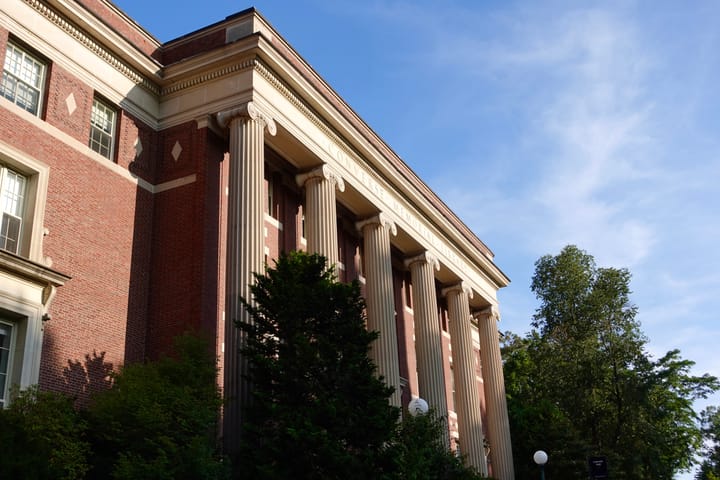What the Administration Isn’t Telling You
Contributing Writer Oren Tirschwell ’25 argues that the recent undisclosed changes to the Honor Code remove important student protections and ignore standard decision-making procedures as articulated in the Code of Conduct.
Last week, Dean of Students Angie Tissi-Gassoway and Department Chair of Asian Languages and Civilizations Timothy Van Compernolle published a letter from the College Council in The Student. Among other things, they state, “the only group on campus with the delegated authority to propose changes to the Honor Code is the College Council.”
Either this claim is a lie, or the college breached its contractual obligations to students under Massachusetts and federal law in February.
On Feb. 27, the college published changes to the Code of Conduct. Included in these changes (though not communicated to the student body) was a removal of protections against harassment based on socioeconomic status and political affiliation.
Specifically, section 1.4.7 of the Honor Code used to read:
“The right, when participating in any aspect of life of the College or traveling among the Five Colleges, to be free from harassment for reasons of one’s race, religion, national origin, ethnic identification, age, political affiliation and/or belief, sexual orientation, gender, gender identity, gender expression, economic status or physical or mental disability.”
But it now reads:
“The right, when participating in any aspect of life of the College or traveling among the Five Colleges, to be free from harassment for reasons of one’s race, national or ethnic origin, color, religion, sex or gender (including pregnancy, sexual orientation, gender expression and gender identity), age, disability, genetic information, military service, or any other characteristic or class protected under applicable federal, state or local law.”
This significant change occurred without notification to, or input from, students or faculty.
So, if the College Council isn’t responsible for this — who is? The Honor Code FAQs (which have since been removed from the college website) claimed that the changes originated from a “Policy Reconciliation Group” tasked with aligning college policies with legal requirements. This group is a set of administrators — notably, not the College Council. Yet, when asked directly, the administration could not provide any examples of state, federal or local laws necessitating the removal of protections against discrimination based on socioeconomic status or political identities.
So, what happened here? As I understand it, the college unilaterally decided to remove these protections in February — without following the process it is required to.
What is the impact of the removal of these protections? These rights meant that the college had an obligation to protect students from face harassment due to their economic background or political beliefs. Losing these protections implies that Amherst no longer explicitly recognizes the harm done when individuals are targeted for their class or their political opinions. It is beyond the scope of this piece to address whether Amherst should prioritize freedom of speech or protections from harassment. My concern here is procedural: Amherst College failed to transparently and democratically follow its own rules for making such significant changes. These protections were explicitly and democratically chosen decades ago by our community. The current students and faculty have a right to participate meaningfully in this critical decision-making process.
I am not a lawyer, and this should not be taken as legal advice. However, through conversations with administrators, I have come to understand that the Honor Code, being a part of the Code of Conduct, is a legally binding contract. By violating the established democratic procedures required for modifying this document, the administration may have breached its contractual obligations to students and faculty under Massachusetts law. Any subsequent version of the Honor Code which is voted on by students and faculty would likely not hold up under legal scrutiny.
If Amherst truly respects its community, it must immediately revert these unauthorized changes and commit to transparency moving forward. Transparency matters. Our administration owes us nothing less.



Comments ()